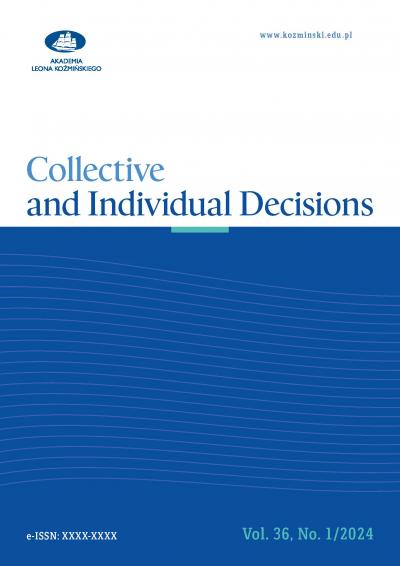Pewne problemy z oceną racjonalności
Piotr Swistak
University of Maryland
6/2015 (23) Decyzje
DOI 10.7206/DEC.1733-0092.44








